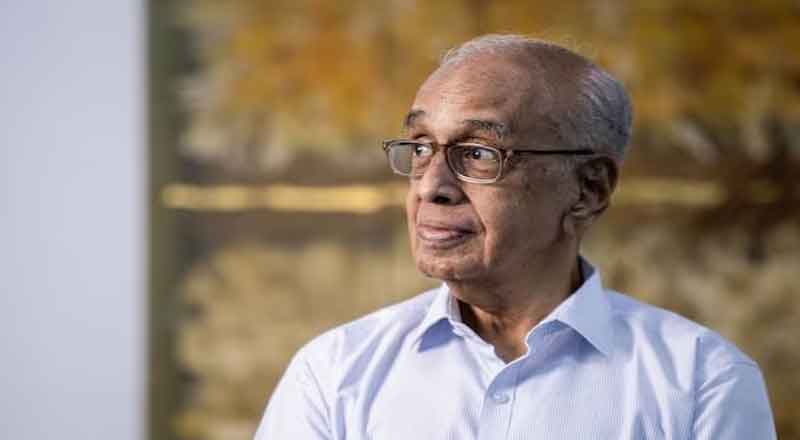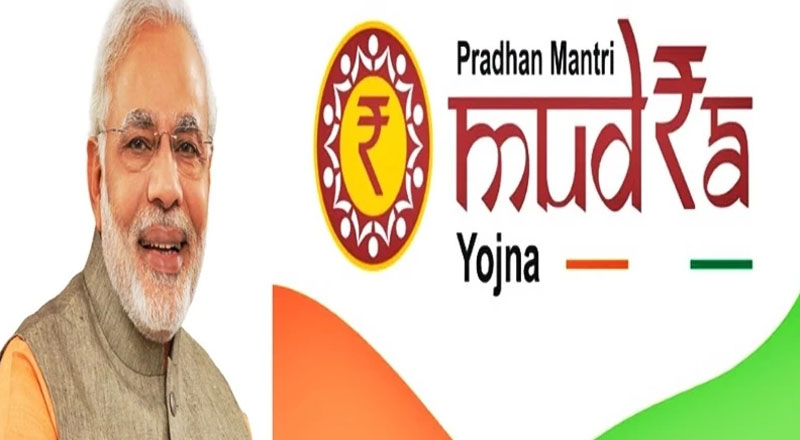He built a fortune lending to low-income borrowers shunned by banks. He paid staff below-market wages and thought they still earned too much. He gave away almost all his wealth to a handful of employees, content with his small house and a $5,000 car.
R Thyagarajan is arguably one of the world’s most idiosyncratic financiers – in no small part because his multibillion-dollar business, the Shriram Group, has thrived in an industry that tripped up countless others around the globe.
A pioneer in extending credit to India’s poor for trucks, tractors, and other vehicles, Thyagarajan built Shriram into a conglomerate that employs 108,000 people in everything from insurance to stockbroking. Shares of the group’s flagship firm hit a record in July after jumping more than 35% this year, four times more than India’s benchmark stock index.
Now 86, and settled into an advisory role, Thyagarajan said in a rare interview that he entered the industry to prove lending to people without credit histories or regular incomes isn’t as risky as it’s perceived. He insists there’s nothing unusual about his approach to business – or his decision to give away a stake in Shriram now valued at more than $750 million.
Thyagarajan’s career highlights untapped opportunities in the world’s most populous country, as more of its 1.4 billion people strive to enter a growing middle class. Though Prime Minister Narendra Modi’s government has pushed to expand access to India’s banking services, about a quarter of the nation still doesn’t have access to the formal financial system. And roughly a third of those who do have a bank account never use it, according to the World Bank.
Forging a socialism-inspired lending firm might seem an unexpected career choice for a man who grew up surrounded by servants in a well-to-do farming family in the state of Tamil Nadu. But Thyagarajan said he’s always had an analytical and egalitarian-oriented mind. He studied mathematics at the undergraduate and master’s levels in Chennai before spending three years at the prestigious Indian Statistical Institute in Kolkata.
In 1961, he joined New India Assurance Co., one of India’s largest insurers, starting a spell in finance as a company employee that lasted two decades. It included stints at Vysya Bank, a regional lender, and JB Boda & Co., a reinsurance broker.
Along the way, people in Chennai came to him seeking money to buy used trucks, and he gave them loans from his inheritance. Gradually, that side venture morphed into his life’s main act. At 37, he founded Shriram Chits with friends and relatives. Over the years, Thyagarajan set up other firms, and Shriram eventually grew into a group of more than 30 companies.
Thyagarajan says his approach wasn’t about charity. It was infused with two key capitalist beliefs. One was the importance of private-sector entrepreneurship; the other was faith in market principles.
Lending to the poor can be murky. Exorbitant interest rates routinely lead vulnerable borrowers deeper into debt. In India, loan sharks sometimes resort to heavy-handed debt collection. Consumer protection is especially weak in the microfinance industry, despite its emphasis on lifting up the vulnerable. Asked to explain what Shriram does differently, Thyagarajan said the group doesn’t look at credit scores, for instance, because most customers aren’t part of the formal financial system. Instead, staff rely on references from existing customers.
Part of what makes Shriram’s system fair, staff say, is Thyagarajan’s own willingness to live among the masses. For years, he drove a Hyundai hatchback. And he doesn’t own a mobile phone, which he considers a distraction.
The tycoon gave away all his shareholdings in Shriram companies to a group of employees, transferring them to the Shriram Ownership Trust, which was set up in 2006. The perpetual trust has 44 group executives as beneficiaries. Executives leave when they retire, taking millions of dollars with them.
The total value of the trust’s holding exceeds $750 million and has gone up several-fold in recent years, people familiar with the matter said, asking not to be identified as the information is private.
In his three-hour interview with a leading news agency, Thyagarajan said he didn’t need the money then or now – and he ultimately prefers simple pursuits. These days, he spends hours listening to classical music and reading Western business magazines.
(With inputs from agencies)





